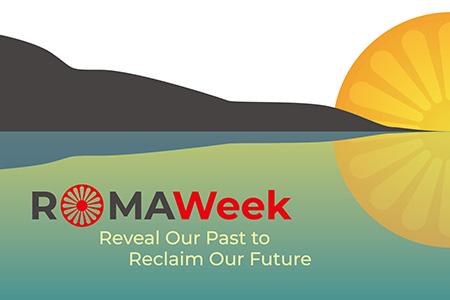
Honourable Members of the European Parliament,
Dear representatives of Roma communities,
Roma youth, academics, social partners and civil society,
Ladies and Gentlemen,
Our democracies are built on a basic promise: Equal rights for all citizens. It shouldn't matter what you look like, what language you speak, and what surname you have. Democracies must deliver for all of us. We know this isn't always the case. For too many of the six million Roma Europeans, these equal rights are not fully granted. Roma people still struggle when they look for a job or an apartment. It was sad to see that many Roma people fleeing Ukraine faced difficulties and discrimination when they crossed into our Union. Roma in Europe are still confronted with insults and slurs in the streets, in the media, and too often, even in political discourse. This must change. And it can change. In democracy, progress is always possible, Even the most entrenched prejudices and discriminations can be eradicated, if public authorities and civil society work together with a shared sense of direction, towards equality and equal rights.
This is why in 2020, we put forward a new EU Roma strategic framework for equality, inclusion and participation. And we have seen some positive change happening all across our Union. In Romania, for instance, our European recovery plan, NextGenerationEU, is helping Roma families get access to healthcare and to a family doctor. In Belgium, young Roma people who look for a job receive training and coaching thanks to EU funds. Poland is hiring more cultural mediators to support Roma children in schools. And in Italy, for the first time ever, a “stumbling stone”, Stolperstein, was laid down to commemorate a young Roma man deported to a Nazi concentration camp. The stumbling stone was laid down in the square where he used to play his violin. These are important steps forward. Towards inclusion. Towards greater awareness of Roma heritage and its contribution to our European cultural heritage. Towards full equality for all Europeans.
And progress must continue. We need to keep Roma rights at the heart of our political agenda. It is for this reason that last January, we took a first assessment of the new national Roma strategies. We highlighted encouraging initiatives and good practices from across Europe. But also the most critical issues where much more work remains to be done – for instance, in the fight against antigypsyism and segregation. In order to improve Roma's quality of life the EU Roma Strategy has set precise targets to be met by 2030. They include cutting by half the Roma employment gap and the participation gap in early childhood education. Many Member States have set national targets. This will allow us to monitor and measure our progress. So that we keep advancing in our journey towards equality.
Building a Union of equality requires the right policies and targets. But also, and crucially, a constant exchange with civil society. With Roma communities, with NGOs fighting for equal rights, with cultural associations promoting Roma culture in Europe. Your voice must be heard. Roma voices must be heard. Both inside our institutions, and in public debates within our societies. So thank you so much for organising and attending this important event. And let me wish to all of you a very good Romani Week.
Thank you.
Related media
Details
- Publication date
- 26 April 2023
- Author
- Directorate-General for Neighbourhood and Enlargement Negotiations
